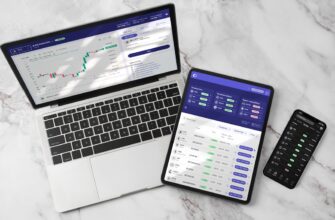The Burning Question: Will Bitcoin ETF Be Approved?
The crypto world holds its breath as investors globally ask: will Bitcoin ETF be approved? A spot Bitcoin ETF would allow mainstream investors to gain Bitcoin exposure through traditional brokerage accounts—without directly holding the asset. With giants like BlackRock and Fidelity in the race, approval could trigger a seismic shift in crypto adoption. Here’s an in-depth look at the prospects, hurdles, and implications.
What Is a Bitcoin ETF?
A Bitcoin Exchange-Traded Fund (ETF) tracks Bitcoin’s price and trades on stock exchanges. Unlike futures-based ETFs (already approved), a spot Bitcoin ETF holds actual Bitcoin, offering direct price exposure. Key advantages include:
- Accessibility: Buy/sell via standard brokerage accounts.
- Security: Eliminates self-custody risks for investors.
- Regulatory Oversight: Increased transparency and compliance.
A Rocky Road: Past Bitcoin ETF Attempts
The SEC has rejected over 30 Bitcoin ETF applications since 2013, citing:
- Market manipulation risks in unregulated crypto exchanges.
- Inadequate surveillance-sharing agreements.
- Concerns over custody and investor protection.
Notably, the Winklevoss Twins’ 2017 proposal was denied, setting a precedent for stringent scrutiny.
Why Approval Would Be a Game-Changer
If the SEC greenlights a spot Bitcoin ETF, expect:
- Mass Institutional Investment: Pension funds and advisors could allocate capital safely.
- Enhanced Liquidity: Billions in new capital entering crypto markets.
- Legitimization: Accelerated regulatory acceptance of digital assets.
Analysts predict a potential 20-50% Bitcoin price surge post-approval.
2023-2024: The Make-or-Break Window
As of late 2023, optimism is high. Major developments include:
- BlackRock’s Entry: The $9 trillion asset manager filed in June 2023, boosting credibility.
- SEC Court Loss: Grayscale’s legal victory forced the SEC to review its ETF rejections.
- Key Deadlines: Final decisions on applications from Ark/21Shares, Fidelity, and others are due by January 2024.
SEC’s Concerns: The Remaining Hurdles
Despite progress, the SEC remains cautious about:
- Custody Risks: Ensuring secure storage of Bitcoin by issuers.
- Market Surveillance: Preventing fraud via data-sharing pacts with exchanges like Coinbase.
- Volatility: Bitcoin’s price swings could impact retail investors.
Post-Approval: What to Expect
If approved, the ripple effects could include:
- Short-term Bitcoin price volatility as markets adjust.
- Rivalry among ETF issuers driving fee compression.
- Accelerated development of Ethereum and other crypto ETFs.
Frequently Asked Questions
Q: When will the SEC decide on Bitcoin ETFs?
A: Major applications face deadlines between January-March 2024. Analysts see early 2024 as the most likely window.
Q: Could the SEC reject all applications?
A: Yes, though unlikely given legal pressure and improved proposals. Delays are more probable than outright rejection.
Q: How will a Bitcoin ETF affect Bitcoin’s price?
A: Historically, anticipation drives rallies. Approval could attract $50B+ inflows within years, lifting prices long-term.
Q: Are futures-based Bitcoin ETFs a good alternative?
A> They offer indirect exposure but suffer from “contango” costs. A spot ETF is preferred for accurate tracking.
Q: What’s the best-case scenario for investors?
A> Multiple ETFs approved simultaneously, fostering competition and lower fees while boosting market stability.
While uncertainty lingers, the structural and legal groundwork suggests a spot Bitcoin ETF is inevitable. Approval would mark crypto’s leap into the financial mainstream—rewriting the rules of investing.








